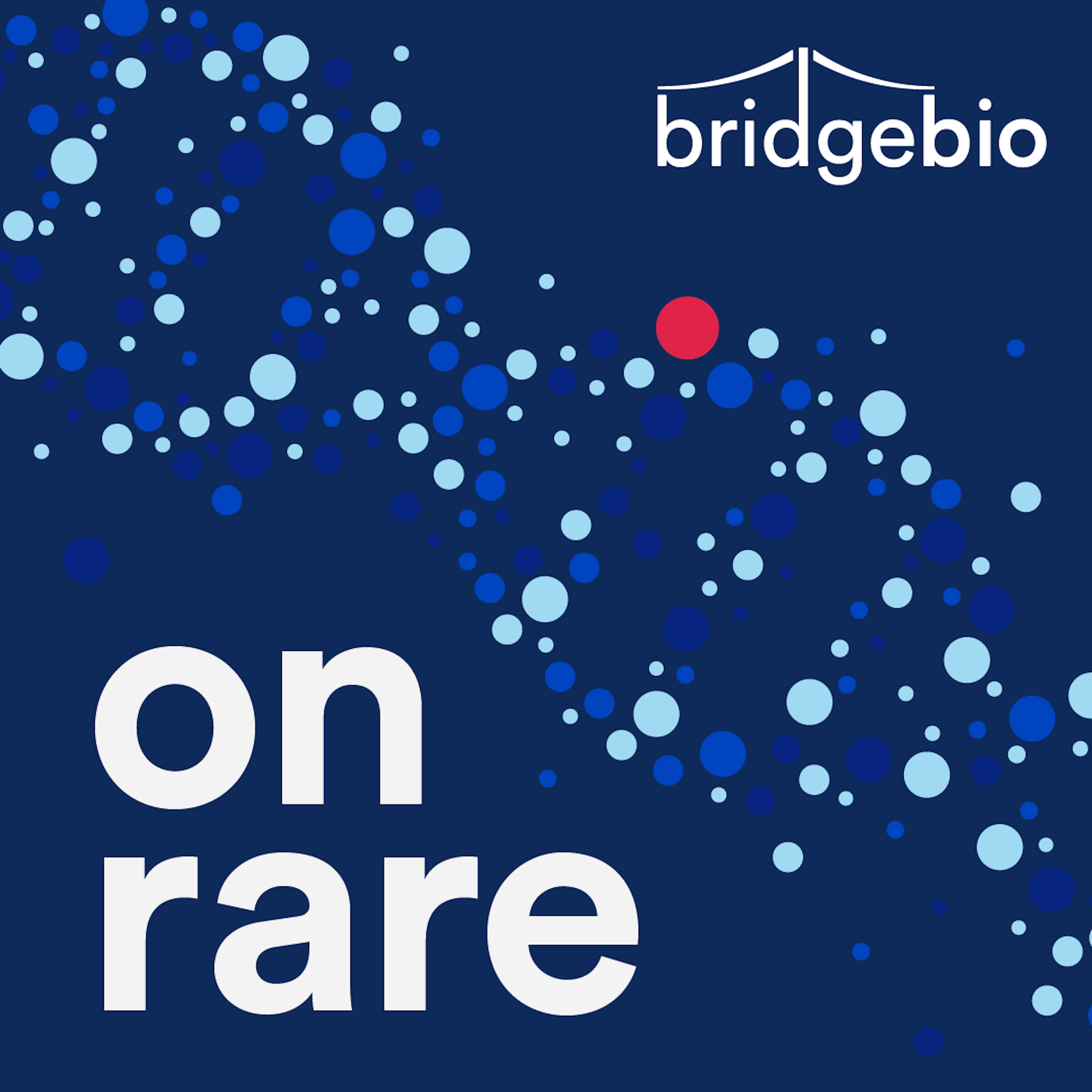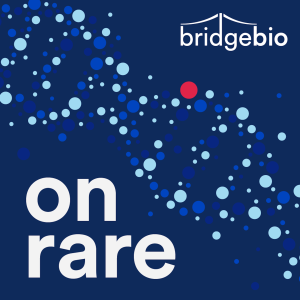
17.1K
Downloads
38
Episodes
Join us each month to listen and learn from the experts – people living with rare conditions. We’ll discuss the challenges and triumphs of life with a rare genetic condition and hear from scientists working to develop new medicines. Honest conversations with the rare community, led by the patient advocacy team at BridgeBio. Subscribe below to catch each episode as it goes live.
Episodes

Tuesday Feb 18, 2025
Tuesday Feb 18, 2025
When Julien was just 6 weeks old, Kady knew something wasn’t right. Despite more than 16 doctors insisting Julien was fine, Kady trusted her instincts and fought for answers—refusing to leave the hospital until the right tests were done. That persistence led to a life-changing diagnosis: a rare genetic form of hypoparathyroidism. Julien’s specific mutation is so unique that he is the only known case in the world. In today’s episode of On Rare, David Rintell, Head of Patient Advocacy at BridgeBio, and Mandy Rohrig, Director of Patient Advocacy at BridgeBio Gene Therapy, speak with Kady, the mother of Julien, a 4-year-old boy living with ADH1. Managing his condition has been a daily balancing act, as too little calcium leads to painful, debilitating symptoms, while too much threatens his kidneys. Kady shares the emotional journey of raising a child with a rare disease, from relentless advocacy to empowering Julien with the knowledge to recognize and communicate his own symptoms.
Michael Collins, M.D., a research scientist at the National Institute of Health (NIH), provides a medical overview of Autosomal Dominant Hypocalcemia Type 1 (ADH1), a rare form of hypoparathyroidism that leads to low blood calcium levels. While most cases of hypoparathyroidism result from accidental gland removal during thyroid surgery, ADH1 is caused by genetic mutations. Often going undiagnosed until a child presents with severe symptoms, ADH1 is difficult to catch early since calcium levels are not part of routine pediatric screenings. The condition is also difficult to treat because standard calcium supplements, which alleviate ADH1 symptoms, can worsen kidney complications, increasing the risk of severe kidney stones and even renal failure. Treatment requires a delicate balance to avoid overcorrection and long-term kidney damage. Dr. Collins sheds light on the complexities of this condition and the challenges both patients and doctors face in managing it.

No comments yet. Be the first to say something!